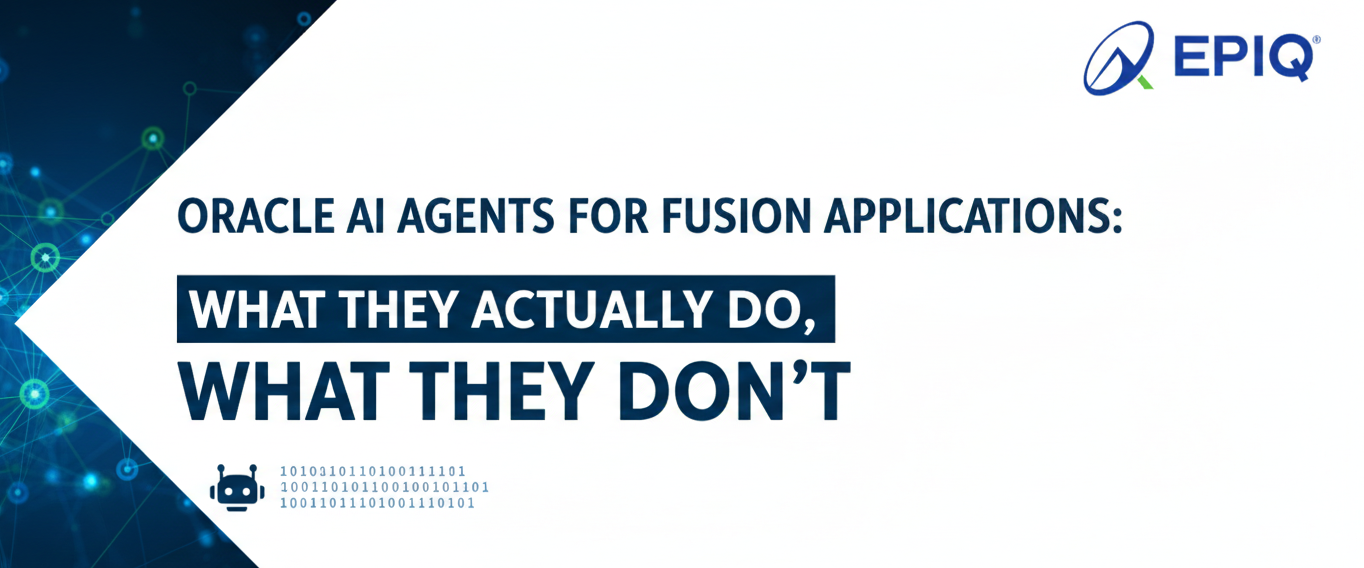Managing the financial health of a multi-entity organization is a significant challenge for any chief financial officer (CFO). As businesses grow and expand into different regions, each subsidiary may develop its own unique financial processes, creating complexities in accounting, reporting, and financial decision-making. Whether it’s late payments, high debt levels, or cash flow issues, financial problems can quickly escalate when they spread across multiple entities.
The challenges of managing finances for such companies are exacerbated by variables such as mismatched accounting systems, inadequate interdepartmental communication, and diverse international regulatory requirements.
Having a unified system in place, CFOs and their teams often spend countless hours manually entering data, reconciling accounts, and making changes. This labor-intensive approach is not only time-consuming but also prone to human error. The lack of consistency across subsidiaries can lead to incomplete data, slow down operations, and reduce overall financial accuracy, making it difficult to close the books on time. To effectively manage the financial processes of a multi-entity corporation, businesses need a comprehensive, standardized solution that can cohesively integrate all financial data. This is where enterprise resource planning (ERP) systems, such as NetSuite, become invaluable.
In this blog, we will explore the various challenges that multi-entity companies face in their accounting processes, and how unifying those processes through an ERP solution can significantly improve financial control, reduce errors, and enhance operational efficiency. Furthermore, we delve into specific ways NetSuite ERP can help companies streamline their financial operations, and how adopting such technology can be a game-changer for multi-entity corporations.
Challenges Faced by Multi-Entity Companies in Accounting
Operating across multiple locations or subsidiaries brings great benefits in terms of business growth and market penetration. However, with these advantages come significant challenges, particularly in the realm of financial management. Multi-entity companies often face difficulties in maintaining control over accounting processes, ensuring accuracy in financial data, and reconciling accounts promptly.
- Lack of Control Over Accounting Processes
One of the biggest challenges faced by multi-entity corporations is the lack of standardized control over accounting processes. As companies expand and add more subsidiaries, each location often develops its own methods of tracking and reporting financial data. This decentralization can lead to a wide variety of accounting approaches within the same organization, creating inefficiencies and making it difficult for management to have a clear overview of the company’s financial health.
Without a unified accounting system, financial data is often scattered across multiple platforms or even maintained manually, making it hard for CFOs to consolidate this information for accurate reporting.
The lack of control over subsidiary accounting processes can also lead to the mismanagement of funds, poor cash flow, and an overall decrease in financial stability. For example, if each subsidiary operates on its own accounting platform without integration, data inconsistencies can arise, which makes it difficult for the parent company to produce accurate consolidated financial statements.
- Inaccuracies in Financial Reporting Among Subsidiaries
Another challenge that multi-entity companies often face is the inconsistency of financial reporting between subsidiaries. Each entity may use different accounting systems or methodologies, leading to discrepancies in the way financial data is tracked and reported. These inconsistencies can create problems when it comes time to consolidate financial statements at the corporate level.
If one subsidiary reports inaccurate data, it can affect the overall financial picture of the company, leading to poor decision-making by management. Inaccurate financial statements can also mislead stakeholders and investors, eroding trust and damaging the company’s reputation. In industries that require strict compliance with regulatory standards, financial inaccuracies can result in penalties or legal issues, adding to the company’s financial burdens.
- Difficulty in Reconciling Accounts Promptly
Reconciling accounts is a time-consuming and labor-intensive task, especially for multi-entity organizations. Manual inputs and adjustments are prone to errors, and without a unified system to streamline the process, closing the books can take significantly longer than it should.
Timely account reconciliation is crucial for managing cash flow, payroll, investments, and other financial obligations. Delays in this process can lead to missed opportunities for cost savings or strategic growth.
For CFOs and finance teams, the need for real-time visibility into financial data is essential. However, manual reconciliation processes often lack the speed and accuracy required for efficient decision-making. This can result in operational bottlenecks, employee burnout, and missed financial reporting deadlines. When reconciliation is delayed, companies may also fail to take advantage of early payment discounts or other financial incentives, further impacting their bottom line.
How an ERP Solution Can Address These Challenges
To overcome the complexities of managing financial processes across multiple entities, many companies are turning to ERP solutions, such as NetSuite, to unify and automate their accounting processes. An ERP system offers a centralized platform where all financial data can be consolidated, standardized, and made accessible in real-time. This not only improves visibility into the company’s financial health but also helps streamline operations and reduce manual errors.
- Gaining Control with Standardized and Automated Processes
One of the key benefits of using an ERP system like NetSuite is the ability to standardize and automate accounting processes across all subsidiaries. By implementing a single platform that integrates financial data from each entity, CFOs can gain full control over accounting operations. This ensures that all subsidiaries follow the same procedures for tracking and reporting financial data, eliminating the inconsistencies that often arise in decentralized systems.
With an ERP system, CFOs can set specific parameters and permissions for users, ensuring that financial data is entered consistently and accurately. The system can also automate routine tasks, such as invoicing, expense management, and payroll processing, freeing up time for finance teams to focus on more strategic initiatives. By automating these processes, companies can reduce the risk of human error and improve overall operational efficiency.
- Reducing Errors and Enhancing Data Integrity
Another significant advantage of using an ERP system is the reduction in errors and the improvement of data integrity. In a manual accounting environment, it’s easy for mistakes to occur due to miscommunication, incorrect data entry, or outdated information. These errors can have a ripple effect, leading to inaccurate financial statements, poor decision-making, and regulatory compliance issues.
NetSuite ERP provides real-time visibility into financial data, allowing CFOs and finance teams to monitor the performance of each subsidiary and address any issues as they arise. This level of transparency is critical for maintaining data accuracy and ensuring that all financial information is up to date. Additionally, the system’s built-in audit trail makes it easy to track changes and identify the source of any discrepancies, further enhancing data integrity.
- Improving Efficiency and Accelerating the Closing Process
Closing the books is often one of the most time-consuming tasks for finance teams, especially in multi-entity organizations. With an ERP solution like NetSuite, companies can automate many of the processes involved in closing the books, such as reconciling accounts, generating financial statements, and reporting on cash flow. This not only speeds up the closing process but also improves accuracy, allowing companies to finalize their financial reports promptly.
CFOs may ensure that financial data is always up to date and accessible for review by automating the closure process. This real-time access to financial information enables companies to make more informed decisions, improve cash flow management, and respond to market changes more effectively. In addition, the ability to close the books faster reduces the workload on finance teams, helping to prevent employee burnout and improve overall productivity.
The Role of NetSuite ERP in Unifying Accounting Processes
NetSuite ERP is a comprehensive solution designed to address the unique challenges faced by multi-entity organizations. Its cloud-based platform offers a range of tools and features that help businesses unify their accounting processes, improve financial accuracy, and enhance operational efficiency. By integrating financial data from all subsidiaries into a single system, NetSuite provides CFOs with real-time visibility into the company’s financial health, allowing them to make more informed decisions and ensure compliance with regulatory standards.
One of the key benefits of NetSuite ERP is its ability to automate routine financial tasks, such as invoicing, expense tracking, and payroll processing. This automation reduces the risk of human error and frees up time for finance teams to focus on more strategic initiatives. Additionally, NetSuite’s real-time reporting capabilities provide CFOs with instant access to financial data, enabling them to monitor performance across all subsidiaries and adjust as needed.
NetSuite ERP also supports multi-currency and multi-tax capabilities, making it an ideal solution for companies operating in different countries or regions. Its ability to handle different accounting standards and regulatory requirements ensures that companies can maintain compliance while still managing their financial processes efficiently.
Conclusion
Managing the financial processes of a multi-entity organization is no easy task, but with the right tools and systems in place, it doesn’t have to be overwhelming. By adopting a unified accounting solution like NetSuite ERP, companies can standardize their financial processes, reduce errors, and improve operational efficiency across all subsidiaries. This not only helps CFOs gain better control over their organization’s finances but also enables them to make more informed decisions that drive long-term growth and success.
For multi-entity companies, the ability to consolidate financial data from multiple subsidiaries into a single system is critical for maintaining financial accuracy and ensuring compliance with regulatory standards. NetSuite ERP offers a powerful solution that can help businesses overcome the challenges of decentralized accounting processes and improve their overall financial performance. NetSuite ERP improves operations and improves financial stability by automating mundane procedures, offering real-time visibility into financial data, and supporting multi-currency and multi-tax capabilities.







